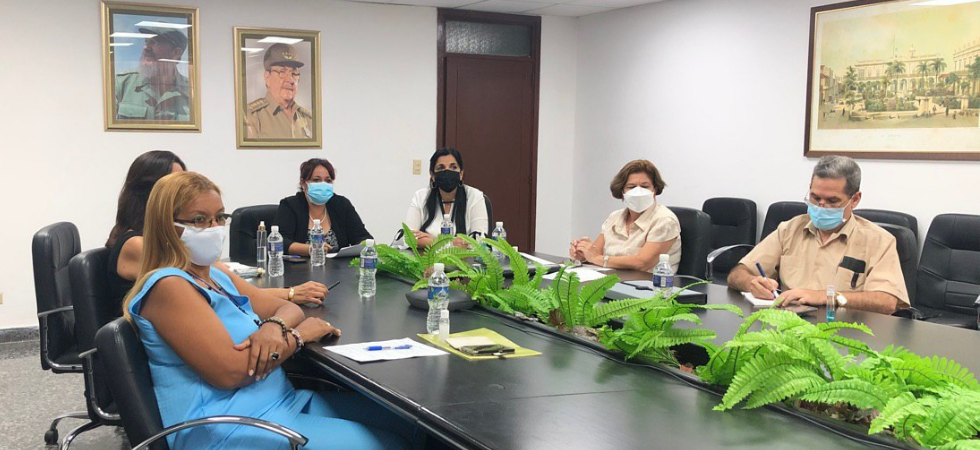
HAVANA, Cuba, May 20 (ACN) As part of the initiatives that precede the World Conference on Higher Education, scheduled for October, the virtual forum Impact of COVID-19 on Higher Education took place on Wednesday, with professors from foreign universities and the country's Medical Sciences.
The speakers insisted that the SARS-CoV-2 virus, which caused the pandemic, imposed challenges and changed the traditional learning models by resorting to online courses as the main way to continue teaching.
According to what was discussed at the meeting, both in Cuban and foreign universities, it was necessary to adapt the curricular plans to assume the contents and orientations, continue with the scientific production and promote resilience in teachers and students.
The forum called for investment in information technologies, since scientific-academic development is an indissoluble unit, technological advances offer greater possibilities and in them lies a large part of the future of higher education, as has been demonstrated during the pandemic.
From the Cuban context, distance education was used, employing interactive platforms, audiovisual media and educational resources that reinforce theoretical contents, enhancing the role of students and collaborative work, said Raquel Pérez Recio, a specialist in Second Degree in General Comprehensive Medicine and of the Methodological Department of the MINSAP's Medical Teaching Directorate.
In addition, tools have been used that allow communication between teachers and students, the sending of materials and the support of non-classroom teaching, through mobile devices and social networks, including Whatsapp and Telegram.
She expressed that there are many challenges for medical teaching, so he urged to continue the improvement of digital content for its assembly on interactive platforms, increase the methodological preparation of teachers in the development and use of the Virtual Learning Environment.
Perez Recio called to stimulate research related to educational technology.
Likewise, representatives of all Cuban faculties and universities of Medical Sciences discussed the teaching-educational work during these 14 months, when students and professors were linked to the integral community work to detect suspected cases of the new coronavirus, through daily research.
They were also part of the brigades that worked in isolation centers and red zone, participated in the packaging of hypochlorite and alcoholic solutions, and the dissemination of educational messages related to risk perception, compliance with hygienic and sanitary measures and the correct use of face masks.
Medical Sciences students have also joined the sanitary intervention with Cuban vaccine candidates that is being developed in the country, as well as distance theoretical activities, research and the creation of audiovisual media for student exchange.
These processes, according to Nidia Márquez Morales, vice rector of the University of Medical Sciences of Havana, strengthen the protagonism of future professionals in virtual spaces, empowerment in health decisions and a better use of the epidemiological approach in dealing with situations that affect health.
It also increases the sense of belonging to the community and the recognition of the processes carried out in Primary Health Care.
For her part, Natacha Lescaille Elias, a specialist from MINSAP's own Methodological Department, referred to interprofessional education, which occurs when students or members of two or more professions learn from and with each other to improve collaboration, services and the quality of health care for the population.
This form of teaching has been evidenced during the months of confronting COVID-19 in the integral community work, and currently the greatest challenge lies in seeing the formative processes, the preparation of the faculty, and the research to solve health problems with an interprofessional approach, which strengthens the health systems and improves the attention to the population.
During the forum, directed by Dr. Heidi Soca González, head of MINSAP's Methodological Teaching Department, professors from the "Alicia Alonso" Higher Institute of Dance, King Juan Carlos University in Madrid, the Spanish universities of Seville, Granada and Almería, as well as the National Autonomous University of Mexico and the Autonomous University of Santo Domingo, among others, took part in the event.










Nos reservamos el derecho de no publicar los comentario que incumplan con las normas de este sitio